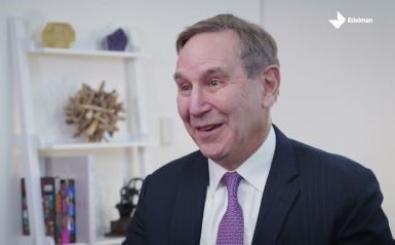Introduction
Although the COP26 final negotiations ended up with a deal to reduce the use of coal, one thing is clear, the climate debate still lacks a true champion. The absence of Xi Jinping at COP26 – not to mention the non-attendance of Vladimir Putin – undermines China’s quest for global leadership and displays its cavalier approach to fighting climate change. It clearly prioritises economic growth at the expense of climate mitigation. By seeking to re-join the Paris Agreement, the US has been trying to re-establish itself as a positive force, after having rejected climate change under the Trump Administration. It is however no secret that the US is also unlikely to fully embrace climate mitigation due to its continuing battle with China for economic primacy.
Beyond mere words
In this context, the European Union increasingly appears to be a natural leader, leading by example and backing up its climate pledges with concrete and tangible projects underpinned by a clear economic growth strategy. Thanks to the comprehensive package of proposals featured in the European Green Deal launched in July 2021 by the European Commission, the European Union is well-positioned to reduce its net greenhouses emissions by at least 55% by 2030. It has also unveiled a Circular Economy Action Plan to help foster a transition to a circular economy with the greater use of recycling across value chains.
The EU and COP26
As important nations such as the US, China and Russia fail to guide world leaders towards climate mitigation, the European Union and its member states have continued to lead the way forward with strong commitments to fighting climate change.
At COP26, over 20 countries including EU member states like Denmark, Italy, Finland, and the Netherlands, as well as development institutions such as the European Investment Bank, committed to halting public financing for unabated coal, oil and gas projects. Even climate-sceptic EU member states like Poland joined 40 countries in a pledge to quit coal – unlike major coal users like the US, China and India.
PM @MorawieckiM at @COP26: "The EU was the first to adopt climate neutrality goals and decided last year to increase emissions reductions from 40 to 55% by 2030. Many countries have followed the EU but global challenges require global efforts". pic.twitter.com/KFxkqednvU
— Chancellery of the Prime Minister of Poland (@PremierRP_en) November 1, 2021
But what truly set the EU and its member states apart during COP26 was a willingness to back up political pledges with actionable plans. For instance, after signing a pledge to foster a shift to more sustainable agriculture and land use, Germany set out concrete national commitments to diminish its emissions from land use by 25m tonnes by 2030. In the same vein, European Commission President von der Leyen announced that the EU would commit €1 billion to support a pledge signed by more than 100 nations to end deforestation by 2030. As part of its support, the EU will also help partner countries protect, restore, and sustainably manage forests worldwide, in order to deliver on the Paris Agreement.
Forests are the green lungs of the earth. We need to protect and restore them.
— Ursula von der Leyen (@vonderleyen) November 2, 2021
I gladly announce that we are pledging €1 billion to protect forests worldwide.
This is a clear sign of our commitment to lead global change to protect our planet in line with #EUGreenDeal. #COP26 pic.twitter.com/3LJaxXhhSm
The best example of the EU’s green leadership during COP26 can be best illustrated by the global methane pledge it initiated in partnership with the US, to which one hundred nations have adhered. This initiative will aim to cut methane emissions by 30% over the next decade. The EU’s role in fostering these types of initiatives is however nothing new. The European Commission previously also supported the UN in the launching of the International Methane Emissions Observatory (IMEO) during the G20 summit. The IMEO will be instrumental in endorsing this pledge and should help develop new regulations and approaches towards climate mitigation by interconnecting data on methane emissions to concrete and tangible actions.
The EU: the Green soft power?
Although the EU is responsible for only around 8% of global emissions, its active role in tackling climate change through the setting of new standards, concrete approaches, and supportive mechanisms within and outside the block could increasingly encourage nations around the globe to put climate mitigation at the forefront of their political agendas. Here, access to the EU market could play a key role, as it has been witnessed with Turkey who was pushed to ratify the Paris climate accord in light of the planned EU carbon border tax. As such, for the time being, the EU seems to be the world’s only credible green leader.
"Don't kill this moment by asking for more texts, different texts, deleting this, deleting that: everyone's been heard by the Presidency over the last months. So I implore you: please embrace this text so we can bring hope to the hearts of our children and grandchildren" #COP26 pic.twitter.com/X8nuLNA3xW
— Frans Timmermans (@TimmermansEU) November 13, 2021
COP26: a mitigated defeat?
Even though COP26 did end up negotiating a new deal, the compromise result left many disappointed. Towards the end of negotiations, China and India were able to win a last-minute concession to soften the text of the agreement – to simply "reducing" rather than "getting out" of coal. At a time when nations around the globe needed strong leadership more than ever, it is clear that the world’s largest countries have failed to step up in a meaningful way. In this vacuum, it is up to the EU to take the lead in the run-up to COP27 in Egypt. Next time around, the world expects more – and as it stands, the EU is set to take centre stage.
If you want to know more about this article get in touch with Victor or get in touch with our Sustainability team to learn more about Edelman's sustainability offer.






